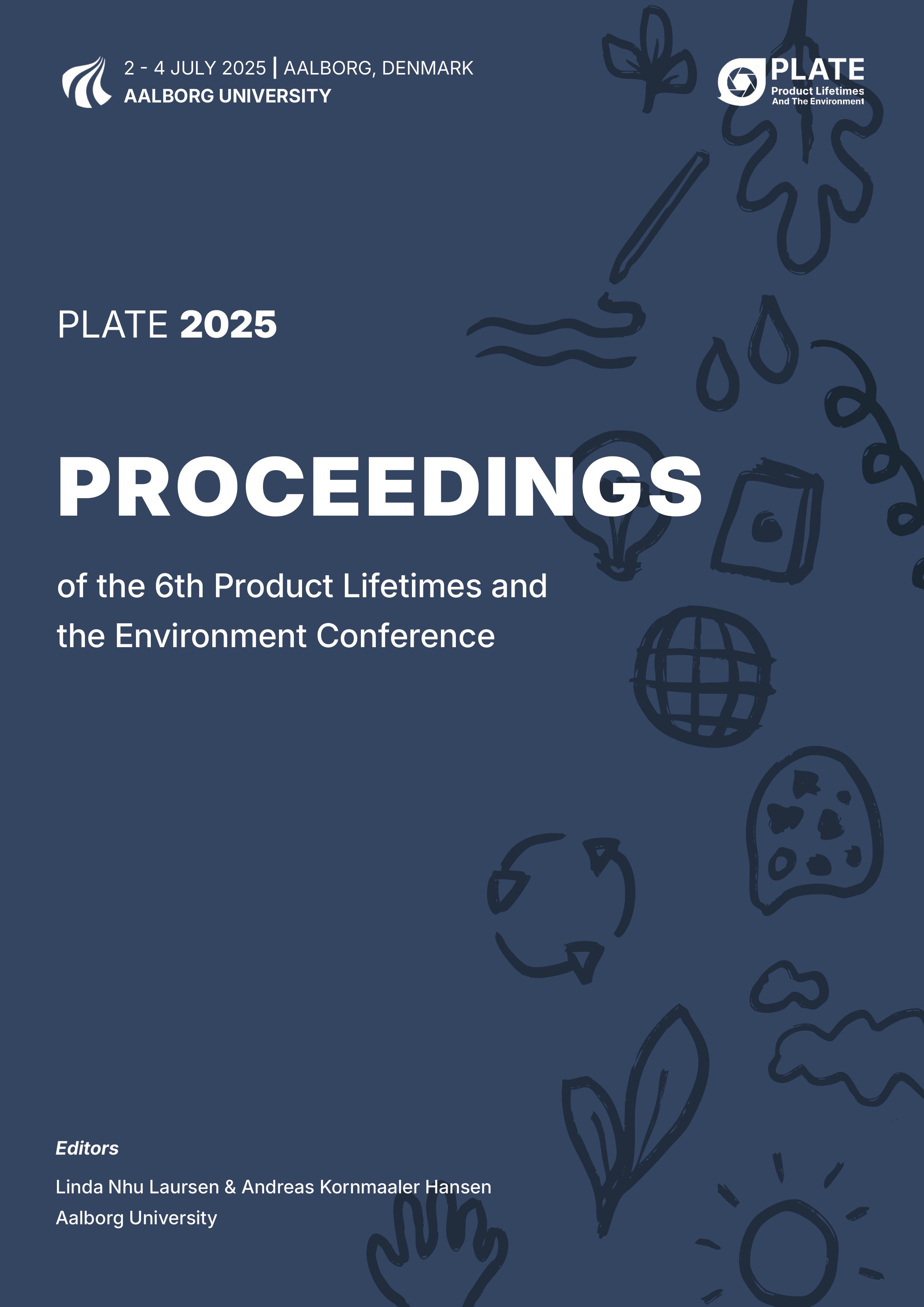Dealing with barriers to repair from the repairers’ perspective
DOI:
https://doi.org/10.54337/plate2025-10415Keywords:
Repair, Repairability, Circular economy, Obsolescence, Barriers to repairAbstract
Repair is a key component of the circular economy paradigm and holds great environmental potential. Our current linear economies, which rely on constantly expanding markets, are not conceived to be restorative and hence create structural barriers to repair. Through semi-structured interviews and questionnaires we explore the commercial repairers’ perspective on barriers to repair, as well as their agency and the strategies they employ to overcome those barriers. Our research has shown that repairers tend to bypass barriers by means of specific repair techniques and cooperation networks.
References
Andersson, A., Carlestam, J., Gunnarsson, J., Henriksson, T., Kristoffersson, P., Mattsson, F., Wessberg, N. (2018). Circular Economy: Research into the availability and willingness to repair consumer electronic products. Lund University.
Blomsma, F., & Tennant, M. (2020). Circular economy: Preserving materials or products? Introducing the Resource States framework. Resources, Conservation and Recycling, 156. https://doi.org/10.1016/j.resconrec.2020.104698
Charter, M., & Keiller, S. (2014). Grassroots Innovation and the Circular Economy. A Global Survey of Repair Cafés and Hackerspaces. The Centre for Sustainable Design.
Cooper, T. (2004). Inadequate Life? Evidence of Consumer Attitudes to Product Obsolescence. Journal of Consumer Policy, 27, 421-449. https://doi.org/10.1007/s10603-004-2284-6
Cooper, T. (2010). Longer Lasting Products. Anternatives to the Throwaway Society. Gower Publishing. https://doi.org/10.4324/9781315592930t
Dalhammar, C., Richter, J., Almén, J., Anehagen, M., Enstrom, E., Hartman, C., Ohlsson, J. (2020). Promoting the repair sector in Sweden. IIIEE.
Daly, H. (1996). Beyond Growth. Beacon Press.
Ellen MacArthur Foundation. (2015). Towards a circular economy: business rationale for an accelarated transition. Cowes: Ellen Macarthur Foundation.
Gharfalkar, M., Ali, Z., & Hillier, G. (2016). Clarifying the disagreements on various reuse options: repair, recondition, refurbish and remanufacture. Waste Management & Research, 34(10), 995-1005. https://doi.org/10.1177/0734242X16628981
Graham, S., & Thrift, N. (2007). Out of Order. Undestanding Repair and Maintenance. Theory, Culture & Society 24 (3), 1-25. https://doi.org/10.1177/0263276407075954
Graziano, V., & Trogal, K. (2017). The politics of collective repair. Examining object-relations in a postwork society. Cultural Studies 31, 634-658. https://doi.org/10.1080/09502386.2017.1298638
Jackson, S. (2014). Rethinking Repair. Em T. Gillespie, P. Boczkowski, & K. Foot, Media Technologies: Essays on Communication, Materiality and Society (pp. 221-240). MIT Press.
López-Bermúdez, F., & Vence, X. (2024). The European Directive on Common Rules Promoting the Repair of Goods. A Critical Assessment of its Drafting Process. Revista Galega de Economía, 33(2), 1-24. https://doi.org/10.15304/rge.33.2.9429
López-Bermúdez, F., & Vence, X. (2025). A critical assessment of the European Directive proposal promoting the repair of goods . Resources, Conservation and Recycling, 212(107996). https://doi.org/10.1016/j.resconrec.2024.107996
Orr, J. (1996). Talking about machines. An Ethnography of a Modern Job. Cornell University Press.
Packard, V. (1960). The Waste Makers. Longmans.
Stahel, W. (2013). Policy for material efficiency-sutainable taxation as a departure from the throwaway society. Philosophical Transactions of the Royal Society A. https://doi.org/10.1098/rsta.2011.0567
Svensson-Hoglund, S., Richter, J., Maitre-Ekern, E., Russell, J., Pihlajarinne, T., & Dalhammar, C. (2021). Barriers, enablers and market governance: A review of the policy landscape for repair of consumer electronics in the EU and the U.S. Journal of Cleaner Production, 288. https://doi.org/10.1016/j.jclepro.2020.125488
Svensson-Hoglund, S., Russell, J., & Richter, J. (2023). A Process Approach to Product Repair from the Perspective of the Individual. Circular Economy and Sustainability, 3, 1327-1359. https://doi.org/10.1007/s43615-022-00226-1
Türkeli, S., Huang, B., Stasik, A., & Kemp, R. (2019). Circular Economy as a Global Business Activity: Mobile Phone Repair in the Netherlands, Poland and China. Energies, 12(498), 1-22. https://doi.org/10.3390/en12030498
Vence, X. (2023). Bases conceptuales para una economía circular transformadora y un cambio sistémico. Em X. (. Vence, Economía circular transformadora y cambio sistémico (pp. 55-108). Fondo de Cultura Económica.
Vence, X., & López Pérez, S. d. (2022). Reforming VAT to boost repair services and the circular economy. Contaduría y Administración, 67(2), 1-25. https://doi.org/10.22201/fca.24488410e.2022.3233
Vence, X., Pereira, Á., Laperche, B., & Pansera, M. (2024). Circular Economy, Sustainability and Degrowth. Revista Galega de Economía, 33(2), 1-6. https://doi.org/10.15304/rge.33.2.10036
Victor, P. (2008). Managing Without Growth. Slower by Design, Not Disaster. Cheltenham: Edward Elgar.




